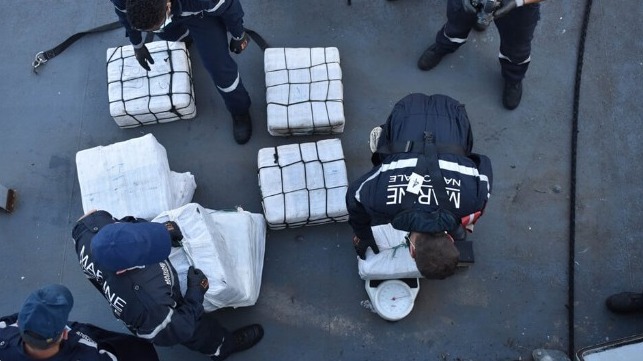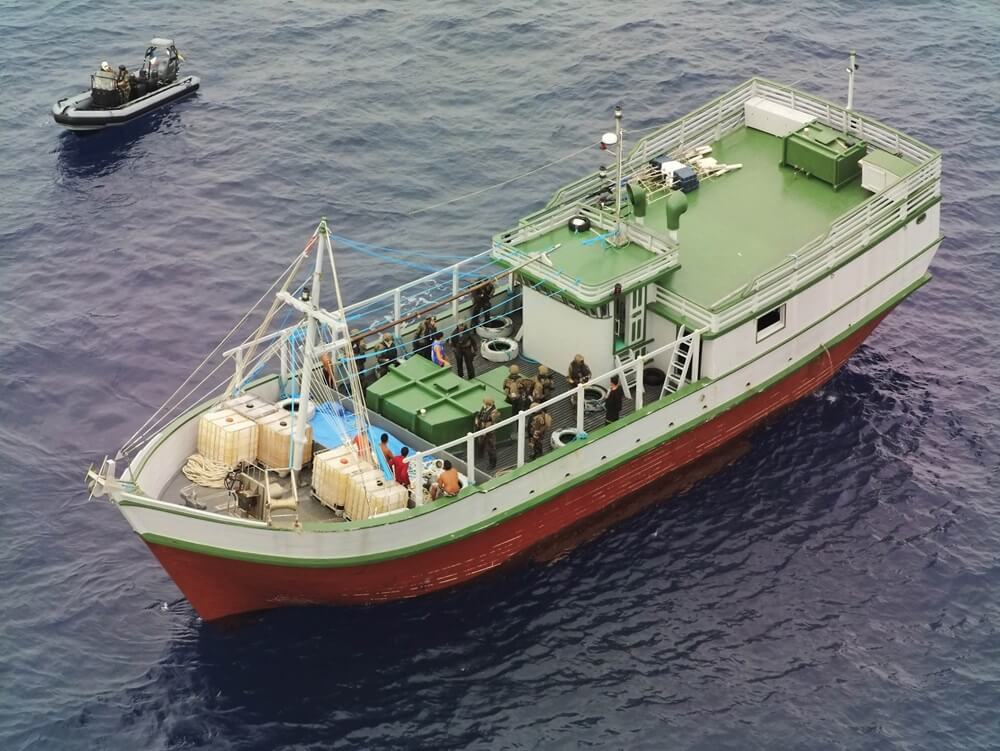French Navy Makes Astonishing 11-Tonne Cocaine Bust in Gulf of Guinea

Last week, French naval forces intercepted a shipment of a staggering 11 tonnes of cocaine aboard a fishing vessel in the Gulf of Guinea. The location of the massive haul adds to a growing body of evidence that South American traffickers are turning to a West African route to get their goods to Europe.
Last week, the French Navy (Marine Nationale) received a request from France's national intelligence directorate and national anti-narcotics office. The U.S. Drug Enforcement Administration (DEA) had passed on information from Brazilian federal police about a cocaine shipment in progress.
In the early hours of March 14, an unnamed French warship intercepted a Brazilian-flagged fishing vessel in the Gulf of Guinea (with approval from the flag state). The boarding team found a total of 10,693 kilos of cocaine on board, and French authorities assessed its estimated market value at about $760 million. Per kilo, this is approximately $71,000 - slightly more than the current price of pure gold.

Courtesy Marine Nationale
The warship was not named, but the Marine Nationale rotates vessels through the Gulf of Guinea to keep a constant presence of at least one ship at all times. The latest participant, patrol vessel Commandant Bouan, recently called in ports in Ghana and Togo.

that matters most
Get the latest maritime news delivered to your inbox daily.
The Marine Nationale has busted smugglers in the Gulf of Guinea before. Last September, French forces intercepted a 2.4-tonne cargo of cocaine aboard a fishing vessel off West Africa.
Trafficking experts believe that these shipments are part of a well-run conveyor belt that transports cocaine from South American producing regions to Brazilian seaports, then onwards to West Africa, where it is transloaded and shipped to markets in Europe. Brazil’s largest criminal organization, the Primeiro Comando da Capital (PCC), has been using the port of Santos to traffic narcotics to Europe through West Africa for a long time, according to the Global Initiative Against Transnational Organized Crime. The PCC is said to be the most powerful player in Brazil’s domestic cocaine market, with an estimated 40,000 members and hundreds of thousands of allies.
